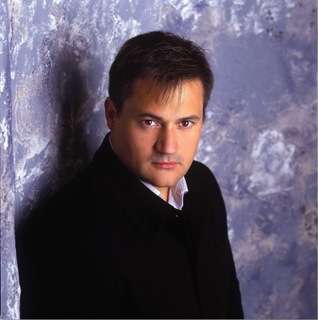|
Back
Dutoit’s Majestic Berlioz Philadelphia
Verizon Hall
06/18/2009 - & June 19, 21
Hector Berlioz: Grande messe des morts
Paul Groves (tenor)
Philadelphia Orchestra and the Philadelphia Singers Chorale, Charles Dutoit (conductor)

Paul Groves (© Henry Fair)
Charles Dutoit has focused his baton on Hector Berlioz in his first season as Chief Conductor of the Philadelphia Orchestra. The maestro’s survey is culminating in a majestic performance of the Grande messe des morts. Dutoit marshals his huge musical forces – including four brass ensembles placed in Verizon Hall’s first tier – in a reading that catches both the grandeur and the intimacy of Berlioz’s gigantic score. From the Philadelphia Orchestra and the Philadelphia Singers Chorale, Dutoit summons thrilling waves of burnished sound in the Requiem’s climaxes. But he also molds the serene passages – and there are many in this 80-minute score – with an elegant hand.
The chorus plays a major role in any performance of the Grande messe des morts. Beautifully prepared by music director David Hayes, the Philadelphia Singers Chorale rises to all the daunting challenges. In the “Tuba mirum,” the chorus pours out a mighty roar, but the 150-voice choir also sings more lyrical portions like the “Quaerens Me” in a stream of limpid, pure tone. The chorus intones the final “amen” in a halo of delicate sound. In the “Sanctus,” Paul Groves sings suavely. Soaring through the hall from the rear of the first tier, his fine-grained tenor floats radiantly in the high-lying phrases.
Dutoit shapes Berlioz’s monumental Requiem like a master sculptor molding a massive funerary frieze. The cool clarity of his interpretation catches the solemn beauty of the score. Berlioz’s music ranges from thunderous outbursts to passages of quietly fervent prayer. Guided by Dutoit, the chorus and orchestra deliver both with commanding control and extraordinary musical discipline. Even in the clangorous climaxes, the conductor draws precise playing from his musical forces spread throughout the auditorium. The brass ensembles pour out mellow waves of unforced sound in the big outbursts of the “Dies irae.” Throughout the performance, the Philadelphia Orchestra plays with intense precision and a beauty of sound at all dynamic levels. At the end of the opening night performance, the conductor, soloist, chorus, and orchestra were greeted with standing applause. They earned the cheers.
Robert Baxter
|